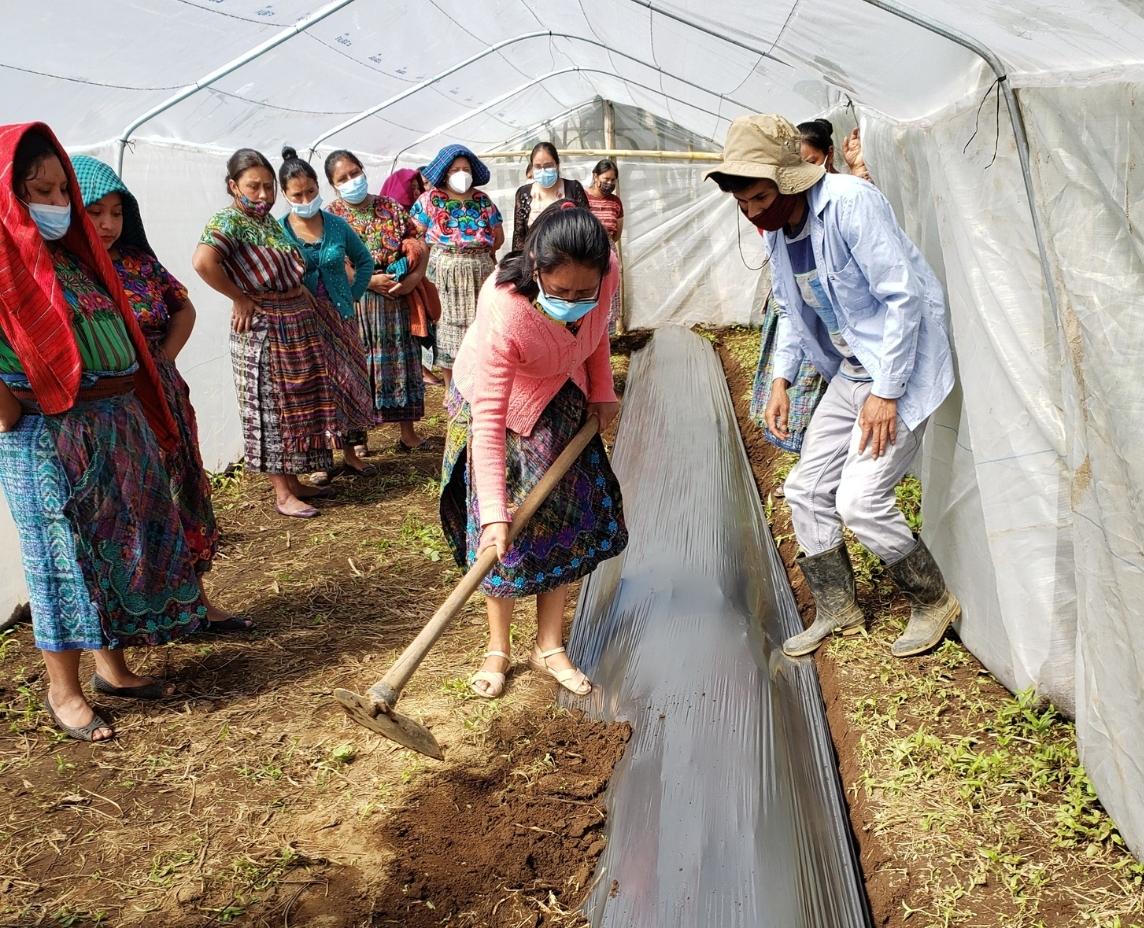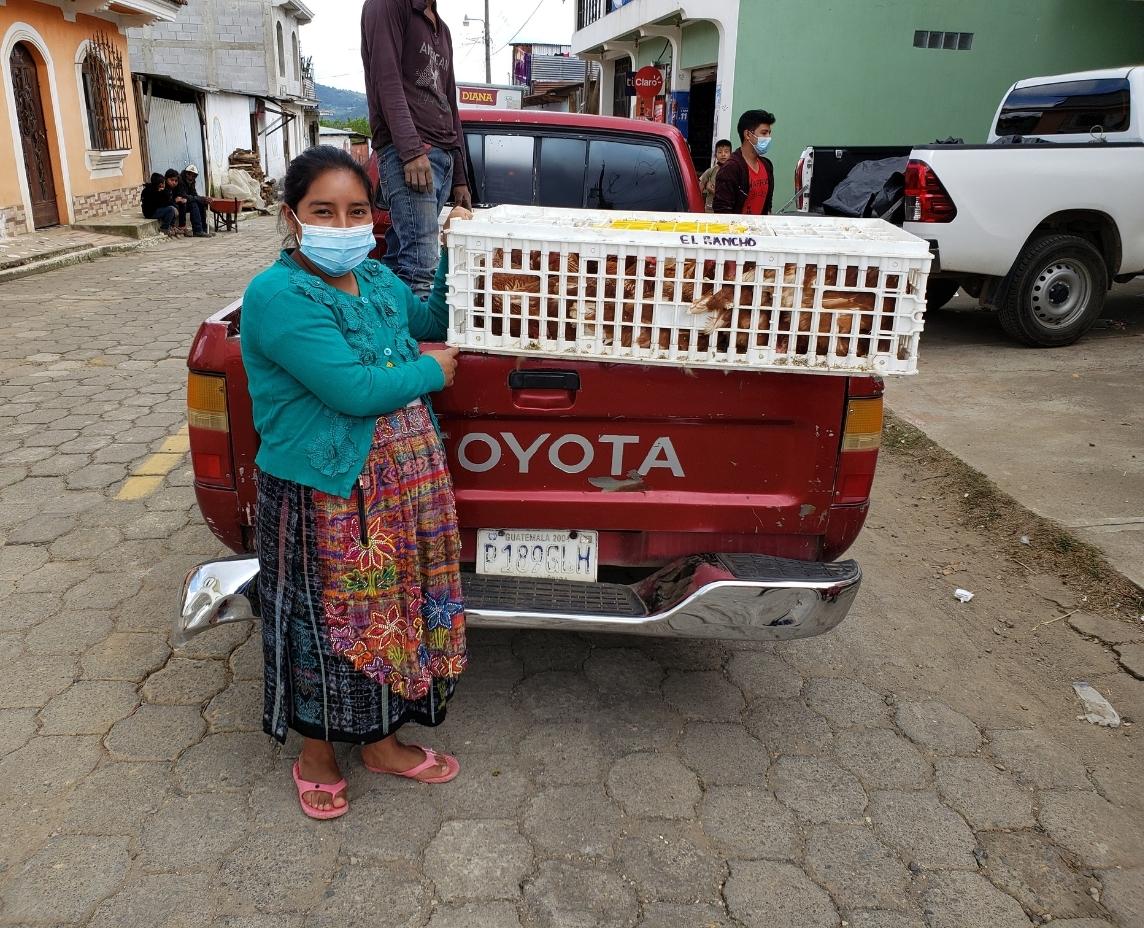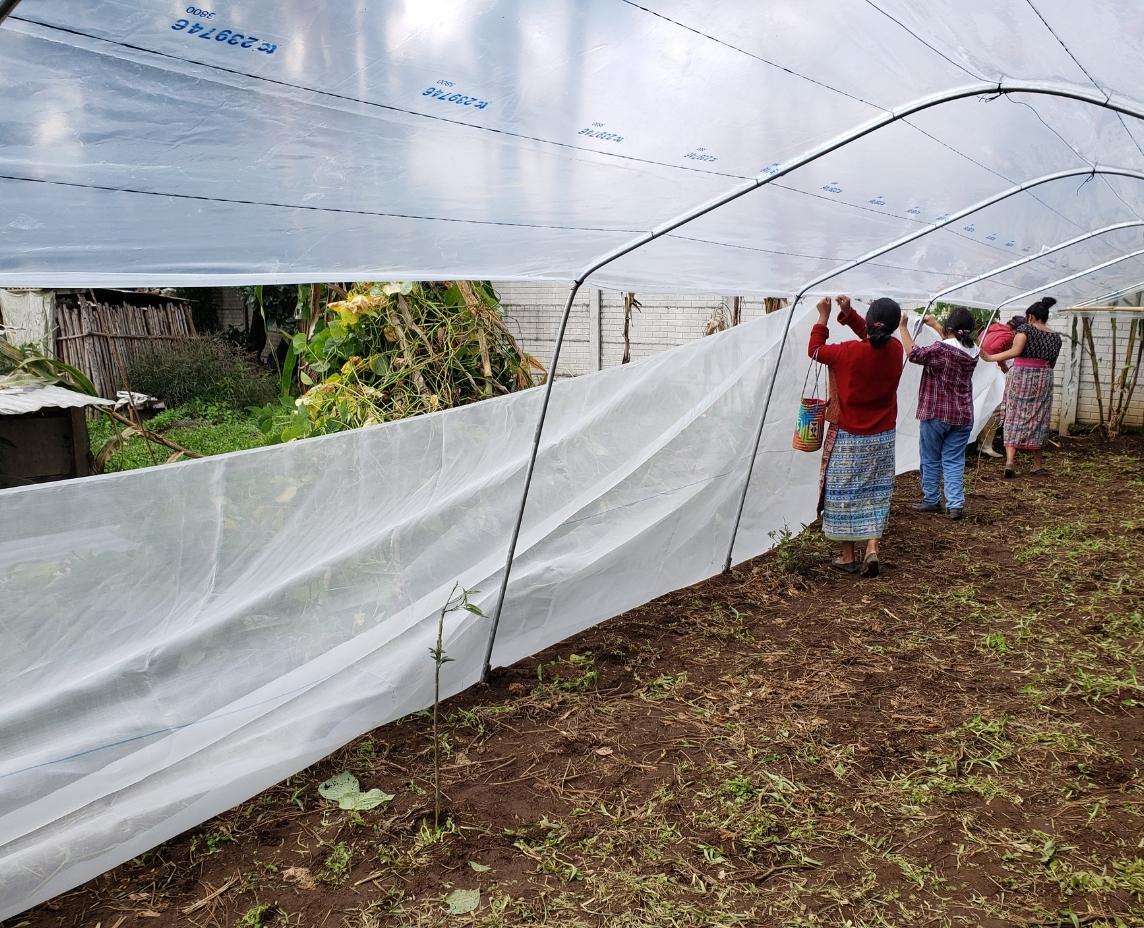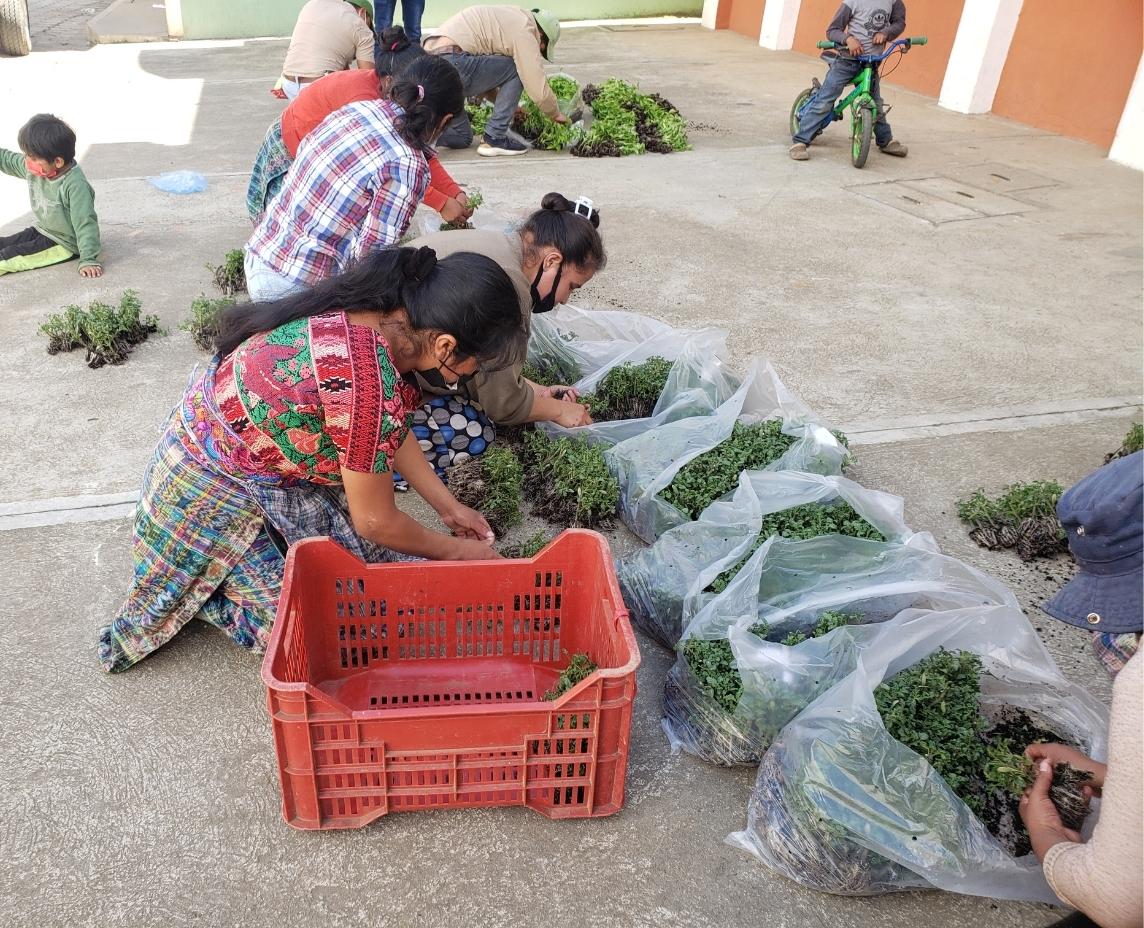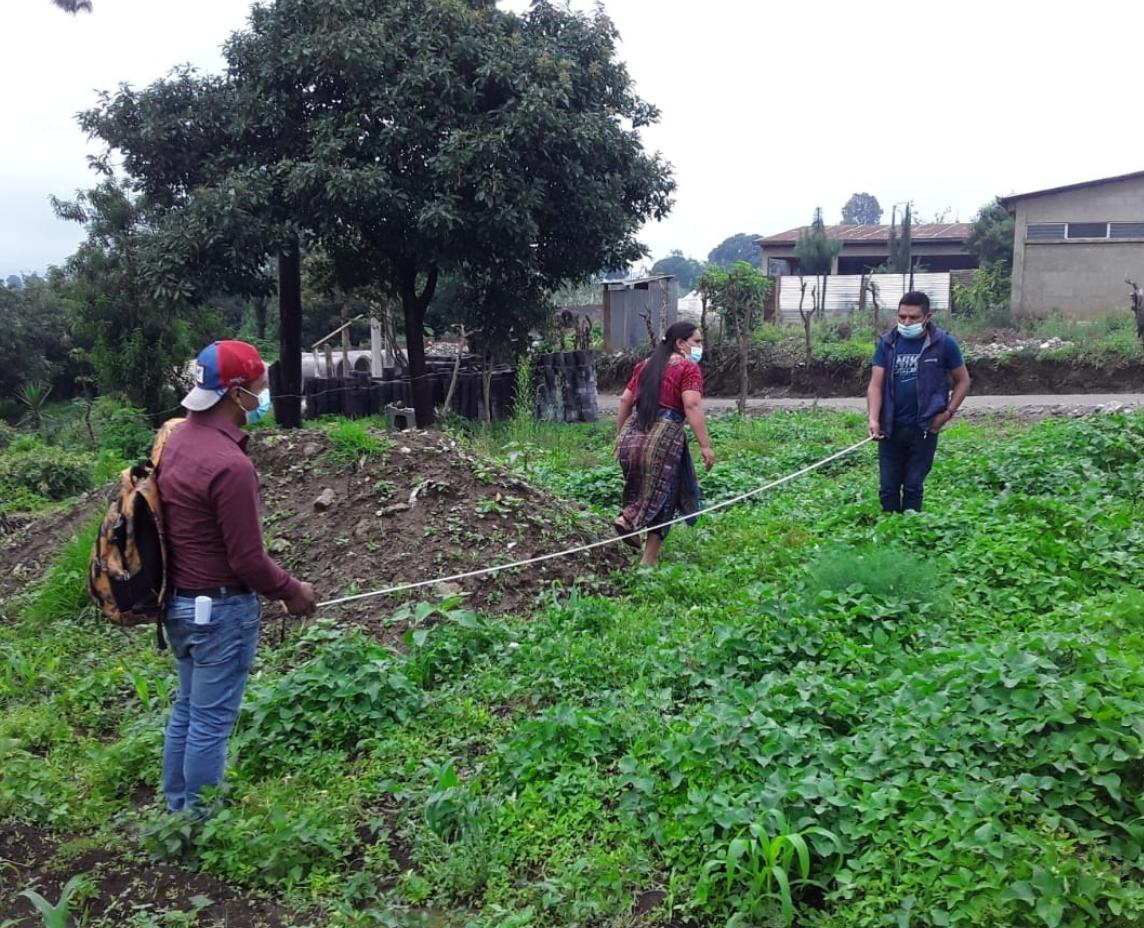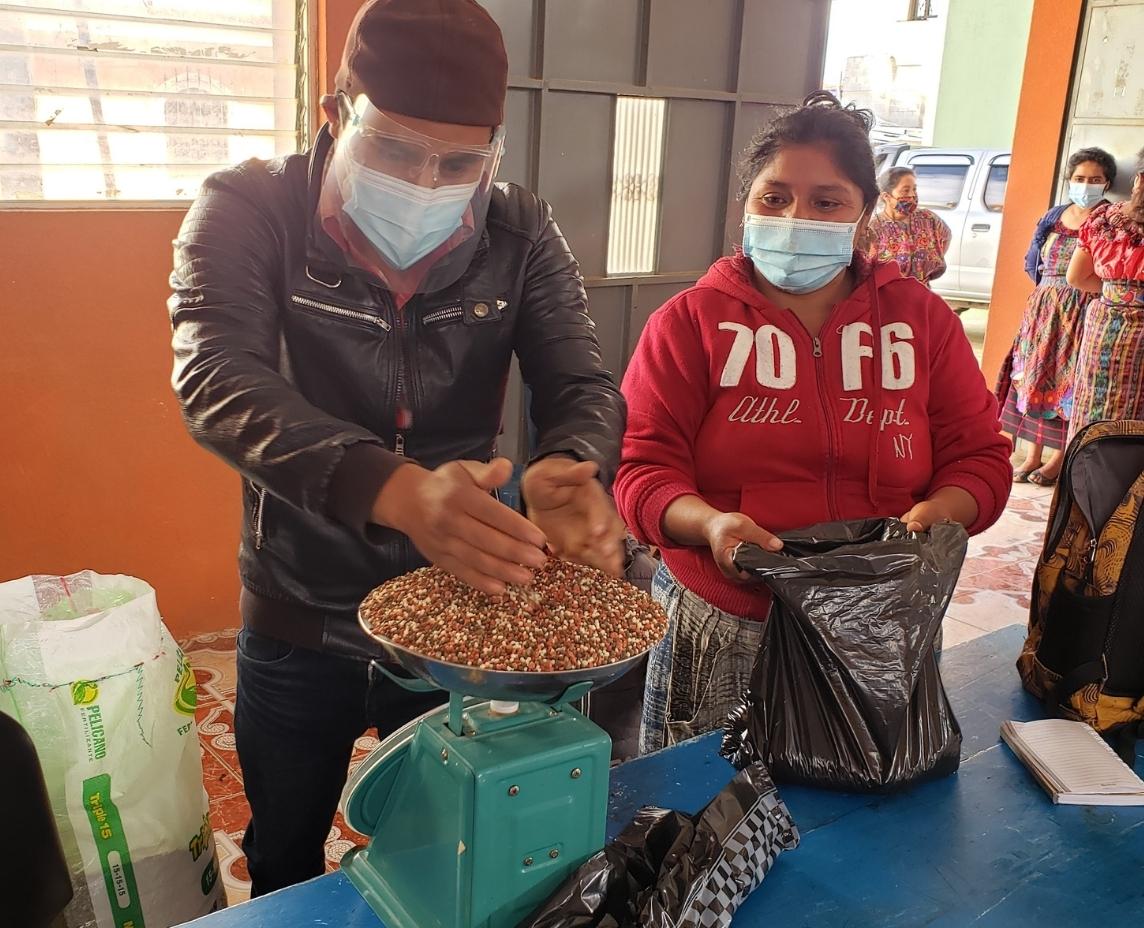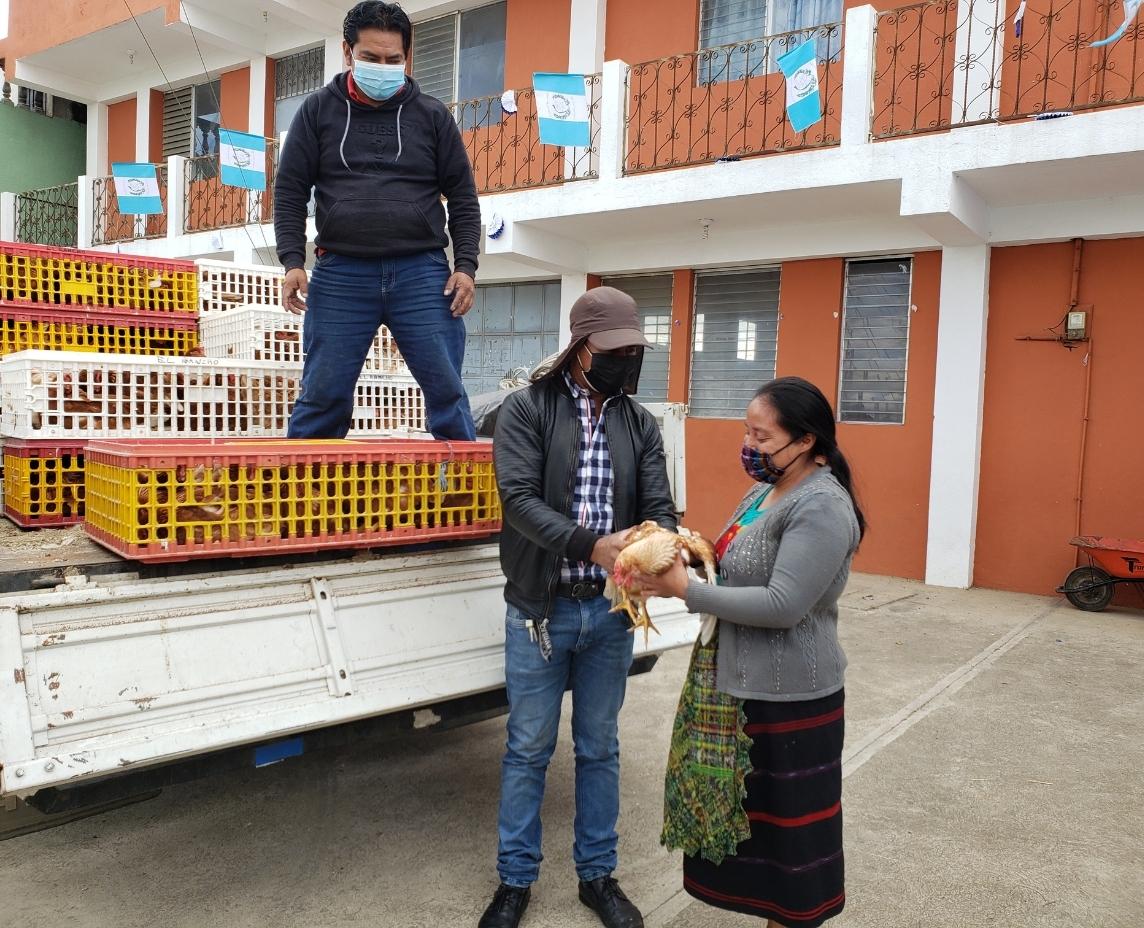Last March a project began in Guatemala, carried out in consortium with the local partner FUDI and financed by the City of Madrid, with the aim of improving access to the right to adequate and sustainable food for the rural population of Joya Grande ( Zaragoza, Chimaltenango) with special attention to the indigenous population.
After the first 9 months of execution, various activities have been carried out to increase the availability of varied and nutrient-rich foods for self-consumption and in the local market, as well as the level of income.
In this way, trainings have been carried out to increase technical skills (with a strong component of empowering women, to promote their autonomy), such as sustainable practices for water, crop and soil management. So far, 85 families have started their training in agricultural production activities, 29 families in oyster mushroom activities and 16 families in poultry farm activities.
Likewise, various productive projects have been started, and in the first month of production, 425 eggs have been collected in each poultry farm (an average of 15 eggs per day), 80% of these being marketed, and the remaining 20% destined for family consumption. . Likewise, there has been a first cycle of oyster mushrooms, with 50% of it being used for family consumption and the remaining 50% being marketed. Agricultural projects have also been launched, starting cucumber production.
Thanks to this, families linked to egg production have increased their income by 27.51% and those linked to mushroom production have done so by 19.17%.
Through these initiatives, together with activities related to health and nutrition education, such as early stimulation workshops for an adequate development of boys and girls according to their age and nutritional consultations on healthy eating, with home visits to confirm the acquisition of the medical-nutritional training, it has been possible for the child population to improve their diet rich in nutrients, helping to reduce chronic malnutrition.
In addition, work has been done to strengthen the organizational, participatory and management capacities of the entire community, creating alliances with public institutions to facilitate the comprehensive development of the Project such as the Ministry of Agriculture, Livestock and Food of the municipality of Zargoza or with the The Women’s Ombudsman, which has also been involved in training sessions for participating women and in workshops given to teachers (“Human Rights Workshops”) and to the Municipal Commission for Food and Nutrition Security (COMUSAN) authorities (“Stop violence workshop”). In addition, Boards of Directors have been formed, with a high representation of women, which has facilitated the organization of trainings and workshops, and helps to empower their members as decision makers.





